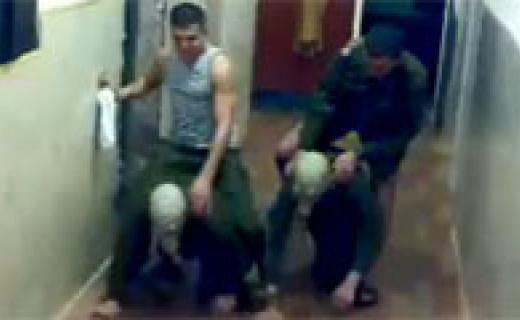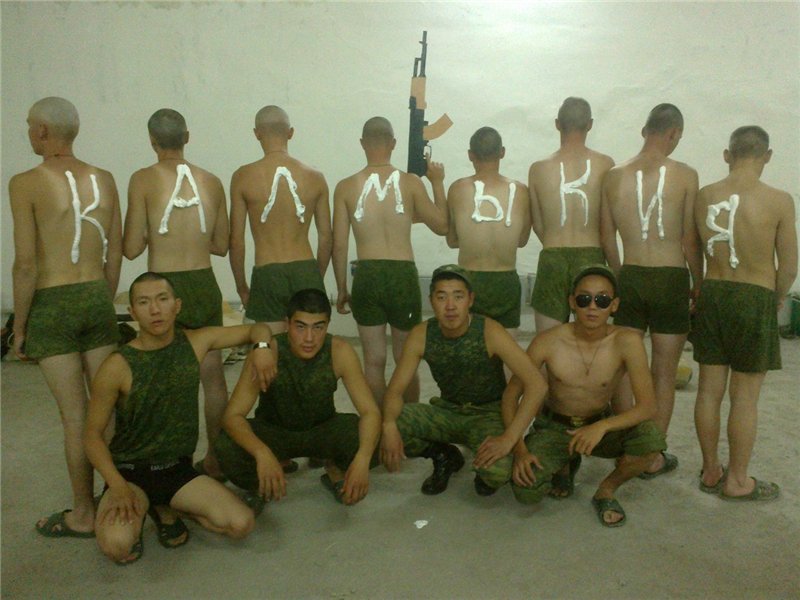Russians and many in the West have come to believe that “dedovshchina,” the notorious practice in which draftees in the Russian military with longer service routinely brutalize those with less, has been defeated and that the military is now focused on military training rather than building houses for senior officers.
But that belief, encouraged by the upsurge of patriotic propaganda, is misplaced, Anastasiya Yegorova of Novaya Gazeta says. “In place of dedovshchina, ethnic clashes have intensified [in multi-national units], soldiers aren’t any better supplies, and winter is coming.”
The military does what it can to hide these events, she continues, not only by making it difficult for journalists and others to find out the facts but also by inculcating the idea among soldiers and the population that anyone who complains is “a mama’s boy” who lies in order to avoid the rigors of military life.
But as she points out, that is what the military has “always said, in the 1980s and in the 1990s. But then we were not yet a great power being reborn.” The fact that such complaints do surface and that there is real evidence that they are true is disturbing not only for the soldiers but for Russians who see the army as a defender of the nation.
Yegorova says her newspaper received a letter of despair from a soldier in a unit based in Kryazh near Samara. The unit, she discovered, has a bad local reputation. Two-thirds of its soldiers are from the Caucasus or Tuva; but even Russians who have the chance to serve there and thus remain close to home avoid it.
The local media and activists from the Soldiers’ Mothers Committee generally have avoided talking about conditions in this unit. They weren’t even able to give Yegorova the telephone number of the unit; she found it only after much effort and got to see the soldier involved only by claiming that she was his girlfriend and pregnant. “This was an improvisation,” she says, but “it worked.”

Ethnic Russians in the unit form only a third of the personnel, he told her. Draftees from the North Caucasus and Tuva form the rest. The latter form groups and “enjoy definite privileges from the command,” including the ability to enforce order by violence. The Russian soldiers keep quiet lest they suffer more.
Yegorova asked the soldier why he hadn’t written home about this, and he replied that he “didn’t want to agitate them.” Moreover, he added, “it’s better that they don’t try to do anything. Otherwise it will become worse for everyone.”
North Caucasians and Tuvans who don’t do what the commanders order, including work not required of soldiers under the law, are given warnings; Russians who don’t do what they are told are beaten up by the North Caucasians or the Tuvans with the silent approval of the commanders, the soldier said.
The North Caucasians, he continued, are able to do so even without having any weapons. They use their fists because “the majority of them are physically well-prepared and many have trained in mixed martial arts.” They are stronger as well because they go about in groups rather than alone, the soldier said.
Making the situation worse, Yegorova says, is the fact that the soldiers are not given the supplies they need. The last batch of draftees were not given anything except summer clothes – and not enough of them. Some of them even have to sew up their uniforms at night because they had only one set.
When the session with this soldier was about over, the Moscow journalist says, she felt “shame” that she had so little food to give him, something he clearly needed because he appeared malnourished. “He reassured me,” she adds, that had she given him some, the others “would have taken it away from him,” presumably by force.
Related:
- Is the Russian Army about to get a Central Asian face
- The Russian army mobilizes in all directions
- Atamanshchina spreading among Russia’s hybrid military force in Ukraine’s Donbas
- Desertions on the rise from Moscow’s hybrid military force in Donbas
- Russian military analyst: The forces in Donbas are Russian Army
- Ukraine’s Security Council names the commanders of Russia’s hybrid army in Donbas


